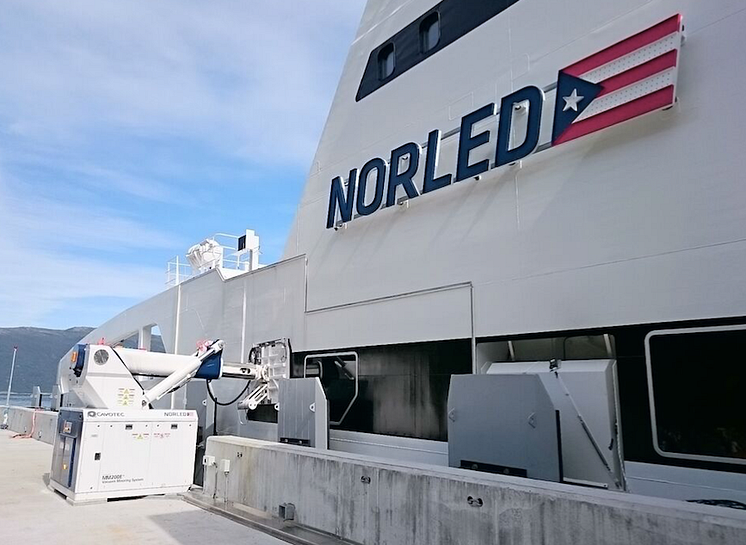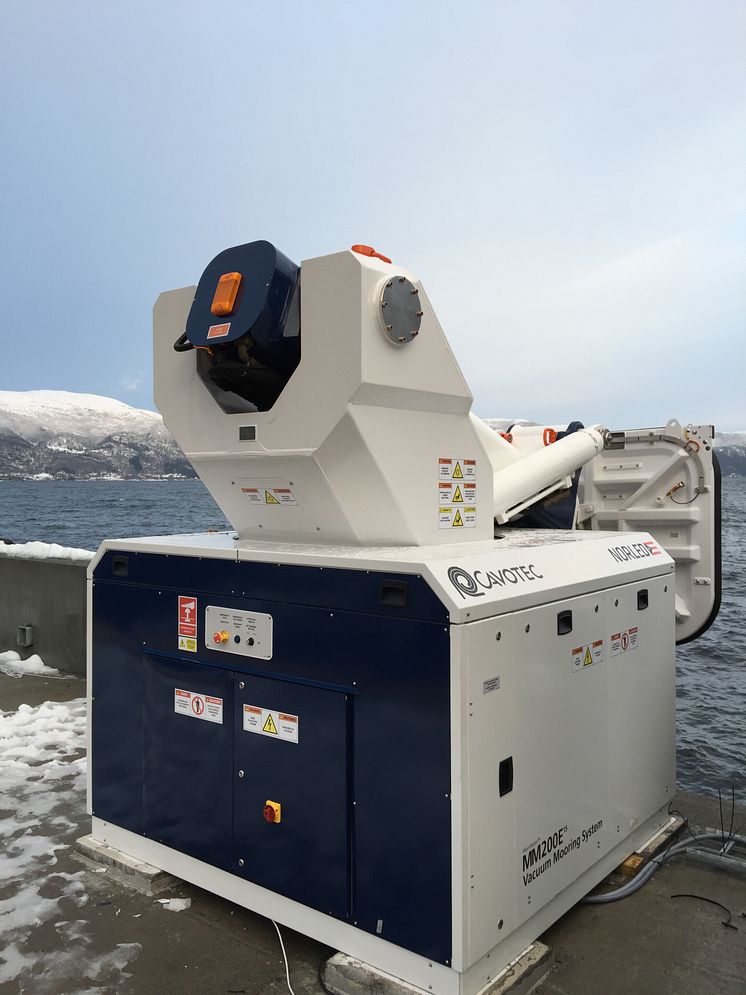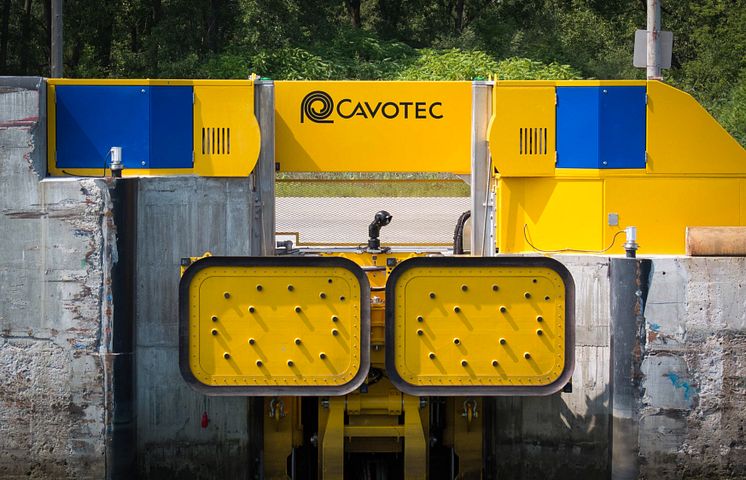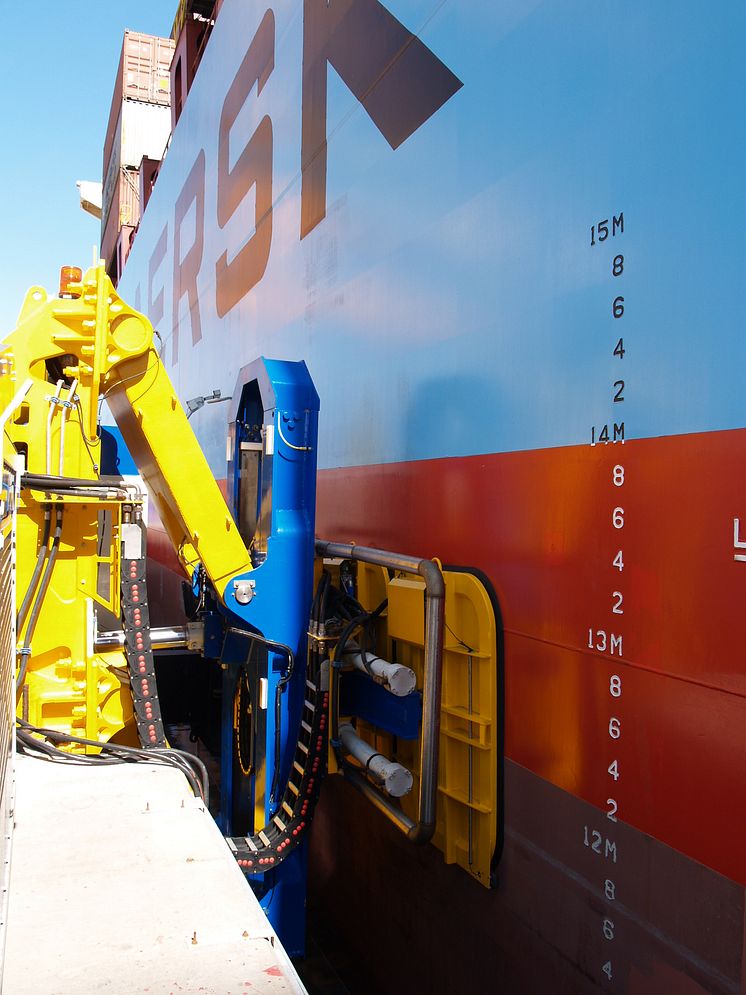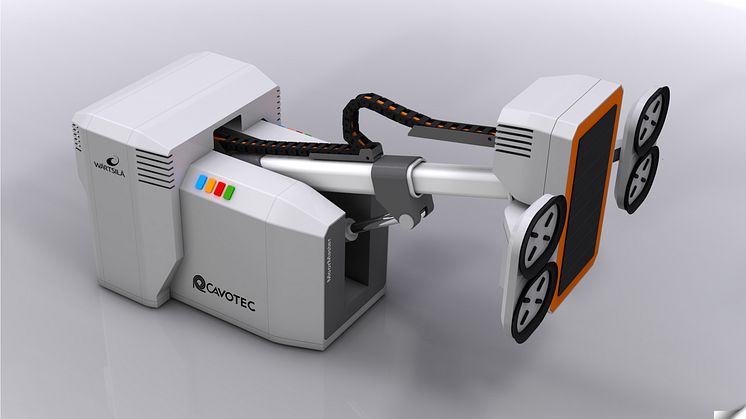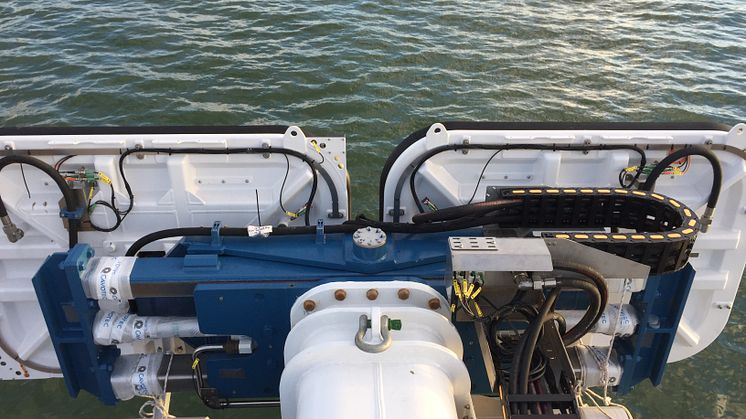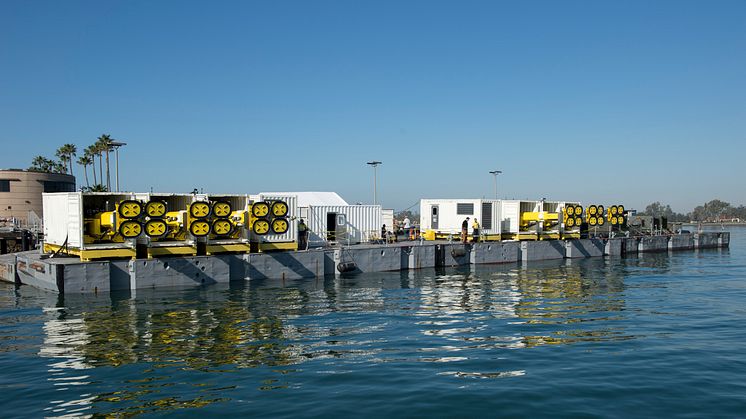
Press release -
Cavotec's MoorMaster™ automated mooring technology registers two major breakthroughs
Cavotec's innovative MoorMaster™ automated mooring technology has registered two major breakthroughs — completion of At Sea Demonstrations of the US Navy's Advanced Mooring System for ship-to-ship operations; and a second order for a combined MoorMaster™ and battery charging system for a hybrid passenger ferry application in Finland — underscoring the acceptance of MoorMaster™ in the industry, and the technology's substantial potential in the market.
"These latest breakthroughs for MoorMaster™ are important milestones for the Cavotec Group. Crucially, they highlight this unique technology's growing acceptance by the market," says Cavotec CEO Ottonel Popesco.
The US Navy's Advanced Mooring System, (AMS), employs MoorMaster™ to control vessel movement and eliminate the need for conventional mooring lines. MoorMaster™ units typically deploy and detach in less than 30 seconds.
Previously, MoorMaster™ units have been mounted on the quay face, onto the berth surface, or built into lock walls. AMS is the first version of MoorMaster™ specifically designed for use at sea and for ship-to-ship mooring operations.
Shore-based MoorMaster™ units have performed some 200,000 mooring operations to date at ferry, bulk handling, Ro-Ro, container and lock applications worldwide, dramatically improving safety, operational efficiency, and in many cases enabling ports to make infrastructure savings.
AMS MoorMaster™ MM200E60 units, integrated into reinforced 20ft ISO shipping containers and installed on US Navy vessels, are intended to enable "sea-basing" operations such as the transfer of personnel and materiel at sea.
The At Sea Demonstrations were conducted at Naval Base Coronado in California, during which a total of between 40 and 50 mooring operations were completed over the course of several days. Tests were also performed in the presence of a number of guests, including representatives from the US Navy, the US Marine Corps, and the Office of Naval Research.
Meanwhile, Cavotec has won an order for an electric hybrid passenger ferry application in Finland, for which the Group will manufacture, install and commission a combined MoorMaster™ and battery charging system.
This system integrates MoorMaster™ to moor the ferry; Cavotec's Alternative Maritime Power, (AMP), cable management systems to connect the ferry to electrical power; and the Group's Automatic Plug-in System, (APS). APS automates the connection of cranes, ships and other mobile equipment using cable reels.
"APS enables the fully automated connection of electrical power to the vessel at the touch of a button, and MoorMaster™ holds the ferry in position allowing the captain to switch off its thrusters while the ferry is loaded and unloaded," explains Benny Törnroos, Managing Director of Cavotec Finland.
Two MoorMaster™ MM200 units will be installed at the Parainen and Nauvo berths, (one unit at each berth), in southwest Finland, along with two AMP charging towers. As with the installation in Norway that already uses the system, the MoorMaster™ units signal to the AMP units when the ship is securely moored, before laser sensors then guide the AMP connector to a hatch in the side of the vessel where it connects to the ship's battery unit to begin charging.
The electric hybrid ferry, operated by FinFerries, will be approximately 90m long, 16m wide, and will be able to carry up to 90 cars, and is due to enter service in summer 2017. The vessel will make crossings — at 15-minute intervals during the day, and one round trip per hour at night — throughout the year and in all weather conditions.
In recent months Cavotec has also reported MoorMaster™ orders for the US side of the St. Lawrence Seaway, (locks on the Canadian side of the seaway having already being fitted with the system), and its first MoorMaster™ orders in the UK.
Related links
Topics
Categories
Cavotec is a leading global engineering group, developing innovative technologies that enable the maritime, airports, mining and tunnelling, and general industry sectors to operate productively and sustainably.


